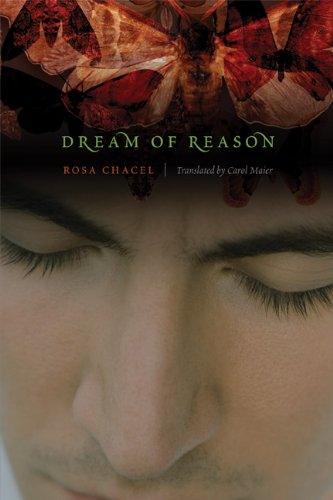Dream of Reason
Rosa Chacel is a Spanish modernist writer whose novel explores the meaning of thought, language, reason, and the emotions as they stream together in an existentialist style. Santiago Hernandez lives most of his life in Buenos Aires before and during the Spanish Civil War. While there is little history recounted herein, his connections to those who directed and were manipulated by the Spanish Civil War are powerful. His world, it appears from his philosophical musings, is a microcosm of that devastating event. Writing about his relationship to three very different women, Herminia, Elfriede (a famous ballet dancer) and Quitina, Santiago realizes how love becomes misunderstood and transformed by possessiveness. The past overlaps the present and future, desire and will become entangled and diminish dreams, deception evokes hatred of the deceived, fidelity haunts infidelity to the point of annihilation. The latter is only saved by introspection: “The first part of my life was totally paralyzed by wanting and being able, by power. The second, slacker, easier, has led me into the labyrinth from which the only exit is understanding.”
Never sure if the narrator has arrived at any total understanding, the reader infers that the journey of being and “observing” is what merits attentive focus, a process very well learned from Proust, James Joyce, and other similar writers. For Santiago and Chacel, life is about the “movement of response” and one’s ability to live out of that mode rather than in retrospect. While Dream of Reason is not light reading, it is filled with beautiful, starkly confessional, and pure segments that address the visions beyond a linear, logical existence. Upon finishing this lengthy but brilliantly written novel, one knows one has left the world of a Spanish writer whose philosophical thoughts has created a new form of Spanish literature.










